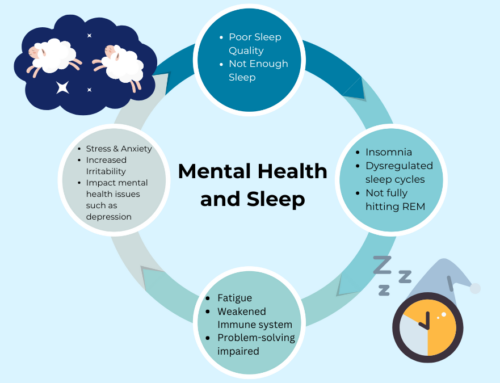Meditation is something that has been practiced throughout the world for centuries, and it has numerous benefits. Here are just a few of the benefits of this ancient practice.
One benefit of meditation is that it increases your self awareness. Being more self aware can benefit you in all aspects of your life.
A second benefit is that it has been proven to lower your stress levels. When we meditate we quiet that part of the mind that is cluttered with negative thoughts that is often referred to as the monkey brain.
A third benefit is that it has been known to lower your blood pressure. Through meditation you are able to regulate stress hormones which are a big contributor to raising your blood pressure.
Now that you have learned about some of the benefits of meditation you may find yourself asking how it works.
The science behind meditation is quite fascinating. Meditation has been shown to have various effects on the brain, primarily through neuroscientific studies that have utilized techniques like functional magnetic resonance imaging (fMRI), electroencephalography (EEG), and other brain imaging methods.
Here are some ways in which meditation can impact the brain:
- Changes in Brain Structure: Regular meditation has been associated with changes in brain structure, particularly in areas related to attention, emotional regulation, and self-awareness. Studies suggest that long-term meditators may have increased gray matter density in regions such as the prefrontal cortex, which is linked to attention and self-control, and in areas involved in emotional regulation and empathy. Basically we take more control of our brains.
- Altering Brain Function: Meditation practices have been found to influence brain function. They can enhance connectivity between different brain regions, improving communication pathways. Meditation has been associated with increased activity in brain networks related to attention, self-awareness, and emotional regulation. Through meditation many people become so much more aware of themselves but also their emotions, and are able to look at their emotional state more from the outside looking in..
- Reducing Activity in the Default Mode Network (DMN): The DMN is a network of brain regions associated with mind-wandering and self-referential thoughts. Meditation, especially mindfulness practices, can reduce activity in the DMN, leading to decreased rumination and an increased ability to focus on the present moment. All the negative things that we think and say about ourselves can be significantly less frequent through meditation.
- Stress Reduction: Meditation has been shown to reduce stress and its physiological effects on the brain. Regular practice can decrease the activity of the amygdala, the brain’s fear center, leading to reduced stress responses. It can also lower levels of cortisol, the stress hormone. When we are stressed we are often trapped in what is known as the sympathetic nervous system, which is our fight or flight response.
- Regular meditation can help us out of that trap and helps us to activate our parasympathetic nervous system. This part of the autonomic nervous system is in charge of the body’s ability to relax. It is known as the rest and digest state. Spending more time in the parasympathetic nervous system helps to reduce stress, lower blood pressure and slow breathing.
- Improving Emotional Regulation: Meditation practices, such as mindfulness meditation, can enhance emotional regulation by strengthening the brain’s ability to regulate emotions effectively. This can result in improved mood regulation and resilience to stress. As we are able to better regulate our emotions, we are able to navigate life’s challenges with a level head and not have our brain hijacked by extreme emotions.
- Enhancing Attention and Concentration: Different forms of meditation, particularly focused attention practices, can improve attention and concentration. Studies have shown that regular meditation can increase the ability to sustain attention on a task and improve cognitive performance. As a result of a meditation routine the brain spends less time in the aforementioned DMN (Default Mode Network) where we tend to ruminate, and where our inner critic lives. As a result we are able to concentrate more on a task on hand because our mind is not wandering or ruminating
- Pain Perception: Some research suggests that meditation can influence the perception of pain. Meditators often exhibit changes in how their brains process and perceive pain signals, showing increased pain tolerance or decreased sensitivity to pain.
Overall, these findings suggest that meditation can induce neuroplasticity, which is the brain’s ability to reorganize and form new neural connections throughout life. As a result, regular meditation practice may lead to structural and functional changes in the brain that support improved emotional well-being, cognitive function, and overall mental health. What this ultimately means is that our brain chemistry changes during meditation but studies have shown that these changes stay with us even when we are not meditating.
Sources:
- Davidson, R. J., & McEwen, B. S. (2012). Social influences on neuroplasticity: stress and interventions to promote well-being. Nature Neuroscience, 15(5), 689–695.
- Hölzel, B. K., Carmody, J., Vangel, M., Congleton, C., Yerramsetti, S. M., Gard, T., & Lazar, S. W. (2011). Mindfulness practice leads to increases in regional brain gray matter density. Psychiatry Research: Neuroimaging, 191(1), 36–43.
- Tang, Y. Y., Ma, Y., Wang, J., Fan, Y., Feng, S., Lu, Q., … & Posner, M. I. (2007). Short-term meditation training improves attention and self-regulation. Proceedings of the National Academy of Sciences, 104(43), 17152–17156.
- Zeidan, F., Martucci, K. T., Kraft, R. A., Gordon, N. S., McHaffie, J. G., & Coghill, R. C. (2011). Brain mechanisms supporting the modulation of pain by mindfulness meditation. Journal of Neuroscience, 31(14), 5540–5548.
Related Articles
Start Living Constantly Healthy Today
Same Day Therapy with Weekend & Evening Availability







